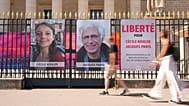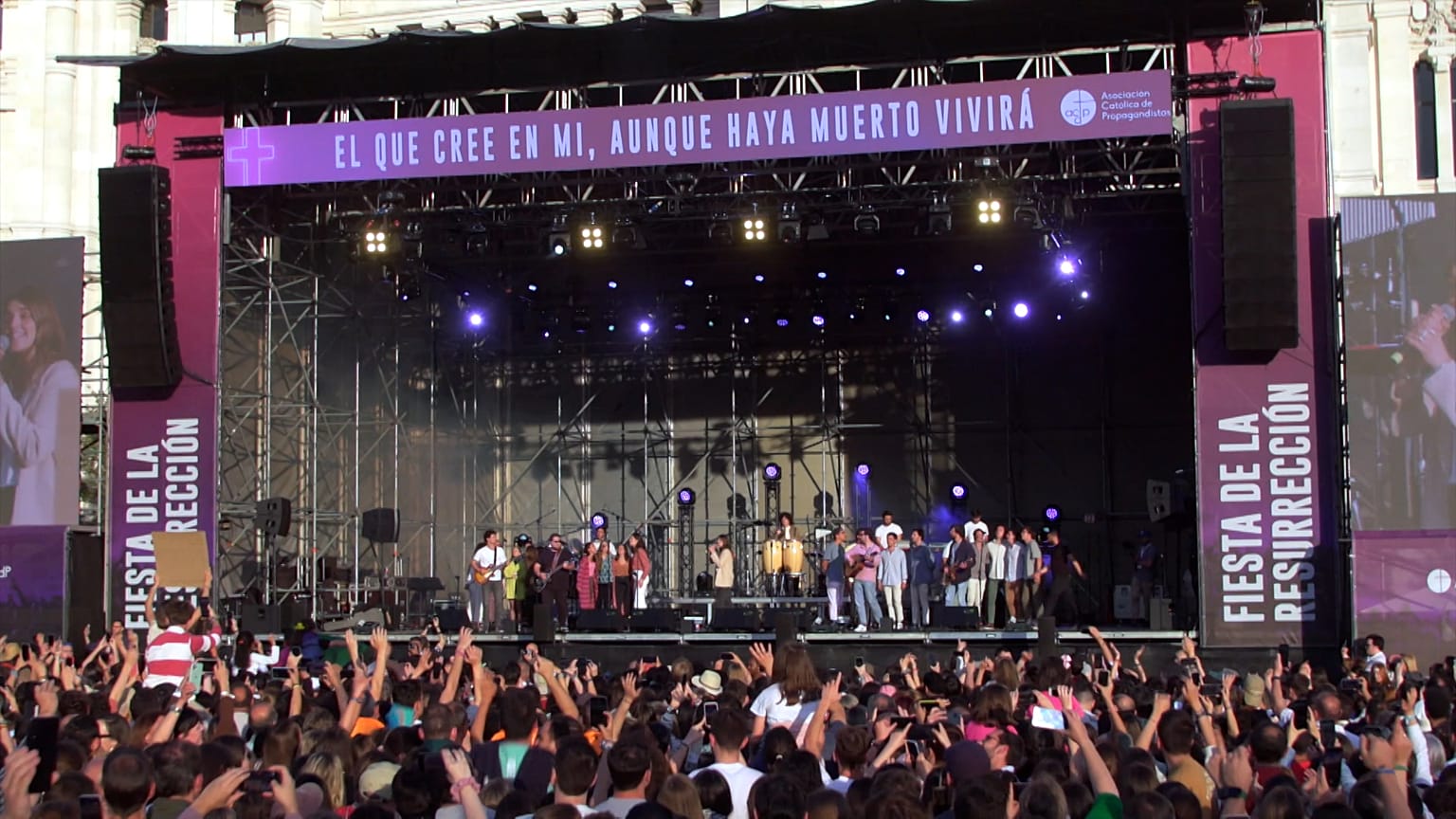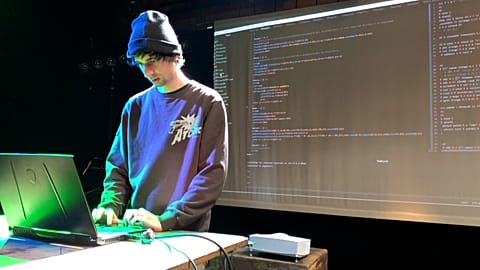Only four out of ten young people claim to be religious in Spain. With the first edition of the Resurrection Festival, organisers hope to revive people's faith through joy and song.
Christian pop has officially arrived in Spain. On Saturday, at Cibeles Square in the heart of Madrid, 20,000 people gathered for the first edition of the Resurrection Festival, a music event to celebrate the end of Easter.
 ADVERTISEMENT
ADVERTISEMENT
 ADVERTISEMENT
ADVERTISEMENT
The initiative showcased artists such as Carlos Baute, Andi and Lucas, the rapper Grilex, Juan Peña and Hakuna – who centre their music around God, Christ and the Christian faith.
The global phenomenon of Christian music
More than a band, Hakuna is a community of young people in which everyone participates in their music. Their songs accumulate millions of listens in Spain.
They were saying ‘Hey, Christian music isn't going to have any hits, is it?’ Suddenly the album 'Sencillamente' came out and after a few months the song 'Sencillamente' already had millions of plays,” says Jorge Labrador, a member of Hakuna. “And now ‘Huracán' has three million on Spotify. It even has gone viral. We didn't expect it at all.”
Hakuna appeals to youth, combining fun with Christian values.
The latest figures reveal that only four out of ten young people claim to be religious in Spain. Bands like Hakuna try to reconnect with the youth through music played on the radio and the streets.
As the number of those practising their faith dwindles, many find in Christian music a reaffirmation that they are not alone.
“It seems like there are only nuns and priests out there [practising religion], but that's not the case,” one girl told Euronews. “With these events, you can see people getting encouraged, you can see that we are just normal people.”

















